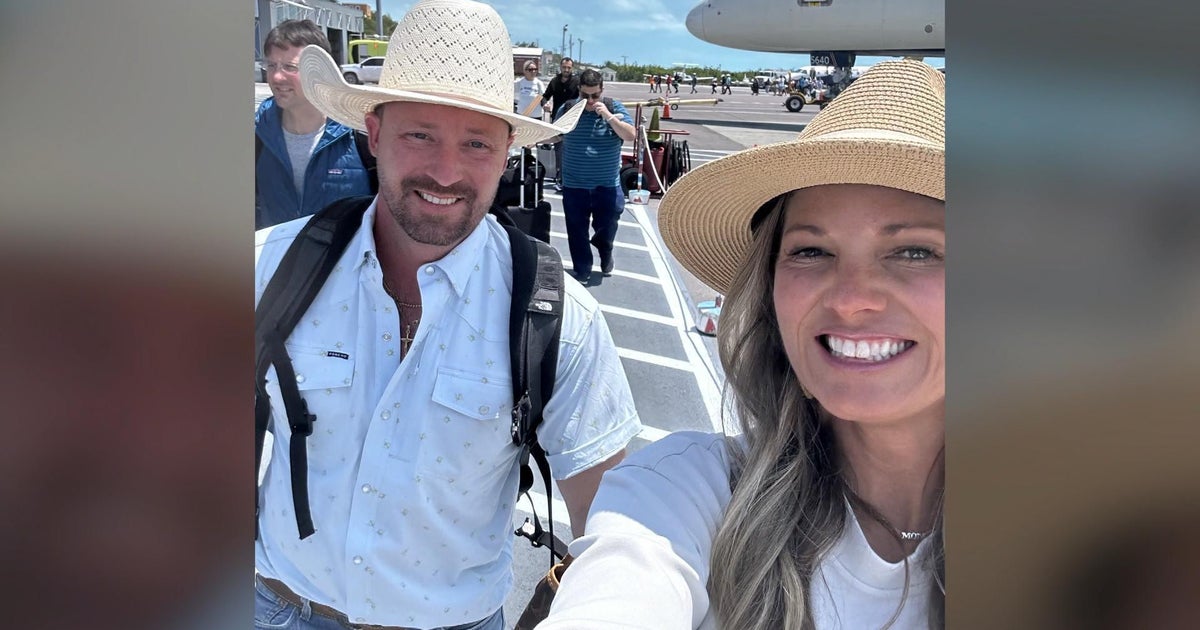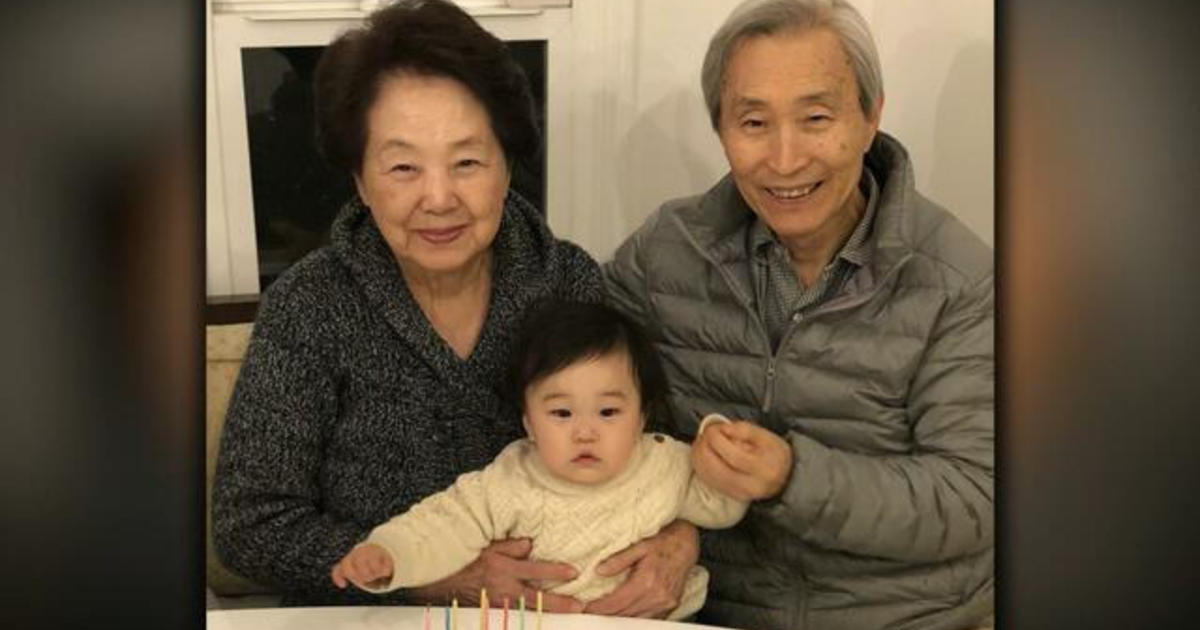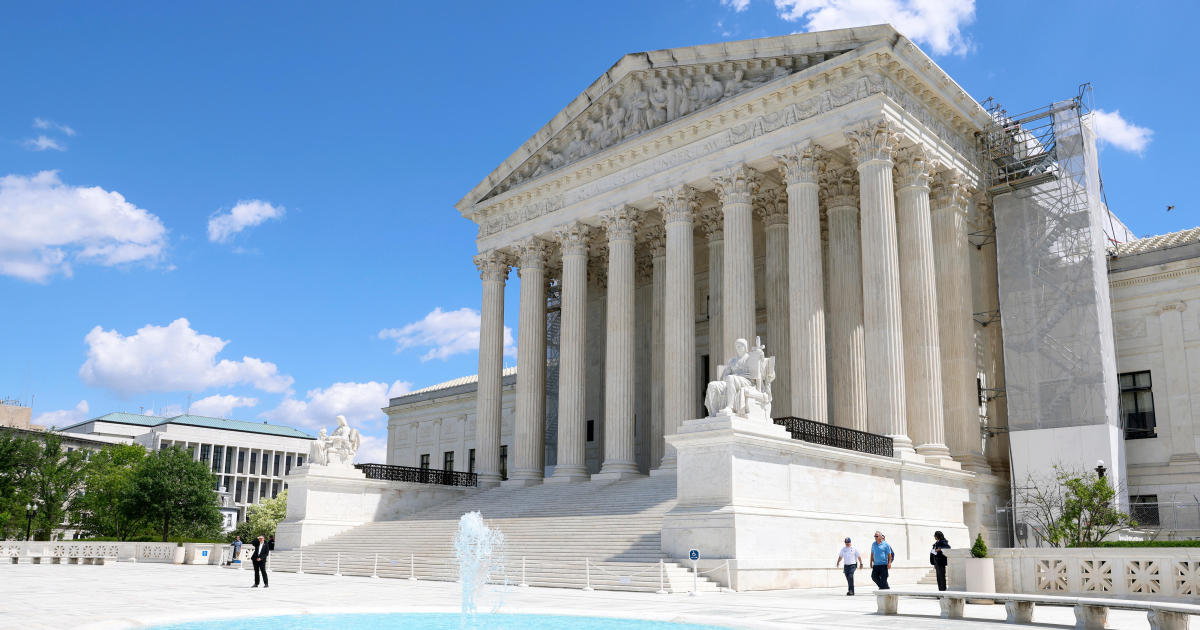ICYMI: Top takeaways from this week's "Face the Nation": COVID-19 drug shows potential for treatment
Following the Food and Drug Administration's authorization of the antiviral drug remdesivir for emergency use as a coronavirus treatment, new hope for an eventual end to COVID-19 was ignited this week.
A recently completed study led by the National Institutes of Health found that remdesivir shortened the recovery time for some coronavirus patients by four days. But questions still remain how exactly the drug will get to those that need it most as new models project deaths will surpass 100,000 nationally.
Here's the big takeaways from Sunday's episode of "Face the Nation" with Margaret Brennan
1. Remdesivir as treatment: Who gets it?
- With an emergency use authorization in hand, Gilead Sciences CEO Daniel O'Day said supplies of remdesivir will be sent out to the most severe patients at the "early part of this next week." The U.S. government – specifically FEMA – will determine where those drug supplies go. Gilead has donated 1.5 vials of the drug to the government, which could be used as treatment for roughly 100-200K patients. O'Day said the U.S. government will determine who gets the drug based on things like ICU beds.
- What O'Day said: "We are now firmly focused on getting this medicine to the most urgent patients around the country here in the United States. And, Margaret, we intend to get that to patients in the early part of this next week, beginning to work with the government, which will determine which cities are most vulnerable and where the patients are that need this medicine."
- What about existing supply: When asked if the Trump administration has talked to Gilead about using the Defense Production Act to mandate that a stockpile of the drug be prioritized for the U.S., O'Day said his company will continue to export the drug and has a "good relationship on future allocation" with the U.S.
- Why that matters: After months of quarantine worldwide, the potential for treatment to the deadly virus shows small but tangible signs that and end is in sight. O'Day notes, however, that the treatment is currently reserved for the most vulnerable of COVID patients.
- "It's important to note that this medicine is really right now for the most severe patients in the hospital, and it's given by I.V. either through a five-day treatment course or a 10-day treatment course, depending on the stage and nature of the patient," O'Day explained of initial treatments for COVID-19. He added that scientists are working on formulating other methods of delivery such as an inhaled version.
2. Despite White House claims of success, coronavirus showing persistent spread
- Former FDA commissioner Scott Gottlieb says the number of new cases and deaths related to coronavirus are rising in at least 20 states, showing the mitigation strategy is not working "as well as expected"
- What Gottlieb said: "There's about 20 states where you see a rising number of new cases: Illinois, Texas, Maryland, Indiana, Virginia, North Carolina, Tennessee have a lot of new cases on a daily basis. And so while mitigation didn't fail, I think it's fair to say that it didn't work as well as we expected. We expected that we would start seeing more significant declines in new cases and deaths around the nation at this point. And we're just not seeing that."
- Is there a light at the end of the tunnel? "I think we have to look out to what's going to happen by the end of June. It's really hard to predict beyond June where this goes because we could have large outbreaks or it could become quiescent in the summer. But I think when you look out to the end of June, it's probably the case that we're going to get above 100,000 deaths nationally. I think the concerning thing here is that we're looking at the prospect that this may be a persistent spread, that while the doubling time has come down dramatically to about 25 days. So the amount of days it takes for the epidemic to double in size is about 25 now, from days or less than a week at the outset of this epidemic. We may be facing the prospect that 20,000, 30,000 new cases a day diagnosed becomes the new normal and a thousand or more deaths becomes the new normal as well."
- A vaccine by fall?: The Trump administration set January as the potential goal to produce 300 million doses of a COVID-19 vaccine as part of a project dubbed "Operation Warp Speed." Gottlieb believes an early, limited version may be available by fall. "And vaccines may be available by the fall in doses sufficient to ring fence infections in cities while we continue to study them to make sure they're safe and effective for mass inoculation."
He added, "I think what we're going to have in the fall is hopefully multiple manufacturers that have cleared early stage safety trials and have millions of doses that could be deployed in large scale studies inside cities. And so what you would do is deploy the vaccine in the setting of an outbreak in a city to both test whether it's safe and effective."
- Why this matters: Following news of Gilead's remdesivir development, the potential for treatment seems closer to reality than previously thought. But these kinds of developments won't come easy -- deaths, according to Gottlieb, will continue to surge across the country even with proper mitigation practices in place.
3. Airline exec says Americans can take to the sky once again
- Is it safe to fly again? Southwest's CEO Gary Kelly says "it is." Here's what they're doing to protect customers: "We're cleaning airplanes. We're requiring masks of our employees and our customers. We're using very deep cleanings every night. We're using electrostatic misters, which will kill the virus on surfaces for up to 30 days. We're exercising social distancing. And onboard the aircraft, we won't be booking airplanes full so that people can spread out. So absolutely, we're doing everything we can to make it as safe as humanly possible."
- Are consumers booking tickets despite the continued outbreak? "I think we've seen the bottom here in April. Each week after the first week of April has gotten successively better. I think May will be better than April was, and I don't think June will be a good month, but hopefully it will be a bit better than May. And then we're looking forward to July and August, and we'll just have to see. There are bookings in place. But those could easily be canceled. So it's really one day at a time," Kelly said.
- Will they need more U.S. taxpayer rescue money? "We've applied for another government loan. I don't know that we'll take it. I think what the government has done for us with this CARES Act is it really has opened up the capital markets. A month ago, we couldn't have borrowed money, we couldn't have raised equity. And we were able to raise $6 billion last week. So I think that we've got what we need to see our way through. But if we have to seek another government loan, we will do that. We have until September to make that decision," according to Kelly.
Will Southwest have to lay off workers? "The demand is just not there. So obviously, if things don't improve, we have to downsize. We've never had a furlough in our history. We've never had a pay cut in our history. And I'm extraordinarily proud of that. And we certainly don't want to break that record. What I promised our people is I don't know what the future holds, but I do know that we're very well prepared," said Kelly
Why that matters: The travel industry has suffered crippling losses as a result of the coronavirus, but Southwest Air's CEO appears undeterred by the dire circumstances. Like much of small business America, so too do major industries need to curtail or adjust their models to a "new normal" around the globe.
4. llinois' J.B. Pritzker faults White House for shortages in coronavirus testing
- Illinois Governor JB Pritzker said hospitalizations in his state are still up slightly but he is "getting ready for a point where we can begin to reopen the economy." Establishing a contact tracing system is a required step before that happens and he's extended stay at home orders until the end of May to make it possible.
- Did the federal Government rise to the challenge? "Well, it's the governors that have risen to the challenge, you know, I talked to my fellow governors, Republicans and Democrats, we've shared ideas with one another about how to keep people safe. We've gotten some guidance from the CDC that's been helpful. But much of what came out of the White House for many weeks was not helpful. We needed the White House to lead on the Defense Production Act to help us get swabs, to help us get VTM, to help us get reagents. That really hasn't much happened, although recently we got a call from the White House telling us that in May they're sending us 600,000 swabs, and I'm very grateful for that. We've, of course, overcome our challenges more recently and increased testing significantly. We're now among the top 10 states in America, we're number two for testing. We've got to get our contact tracing up and going."
- Does he have enough testing supplies? "There still aren't. But the White House is helping, and I appreciate that but it's not enough. It's not enough today. But again, as a state, we're having to go out in the market and compete with every other state to get swabs and VTM and reagents. I wish that the White House had stepped up earlier, and I think they still have the opportunity to do so when it comes to reagent. But the fact is that we're going to overcome this. I believe by mid summer we'll be able to do tens of thousands more tests. And just, again, in May, we'll be able to do more than we're doing today, which is in the high teens."
Pritzker and other governments are asking the federal government for financial aid. Does he expect strings to be attached to financial aid for states? "I don't know whether there'll be strings attached. I hope there aren't too many, because the fact is every state has a problem and it's different in every state where they need to put the dollars. So putting more strings on it makes it much more difficult for us to move forward to get our economies going. So the federal government is really the only entity that can step in and help us out."
- Why this all matters: While the president has pushed a return to business as usual for the U.S. economy, local officials across the country believe there's still a role to be played by the federal government when it comes to reopening and doing so safely.
5. Fed bracing for "tough" jobless numbers
- Over the past 6 weeks 30 million Americans applied for unemployment benefits. Atlanta Federal Reserve President Raphael Bostic says it is "too soon to tell" if those job losses are permanent.
- Bostic, who closely watches the American south said that African Americans are being hit much harder by the virus and that disparity should be addressed.
- What Bostic said:"Well, we've talked to a lot of folks, a lot of consumers and a lot of businesses, and what we're hearing is that many are actually being quite thoughtful in terms of how they're approaching this. You know, one of the things that is very important as you look through the South is that the virus is presenting itself differently in different populations. We know that African Americans are being hit much harder by this. And so the response of how we reopen the economy has got to be thoughtful
- Personal savings running out, but FED is "doing all it can" to help businesses avoid bankruptcies: "We know that for many businesses and for many families, they don't have six or seven or eight months of savings. Instead, they may only have one or two months of savings, which means we're getting about to the time when those savings are going to be depleted. This is why so many of the actions that have been taken have been so important, getting relief into families. And so what we're trying to do right now is understand to what extent is that relief providing its service and keeping people away from those bankruptcies because it is not in our interests for those bankruptcies to happen. That will mean that much more of this is permanent than temporary. And we're going to do all we can to make sure that doesn't happen"
- Why this matters: Staggering joblessness is quickly becoming a very real part of the "new normal" economic experts warn.
Missed Sunday's episode? Click here to watch the show. "Face the Nation" airs Sunday mornings on CBS. Click here for local listings.




